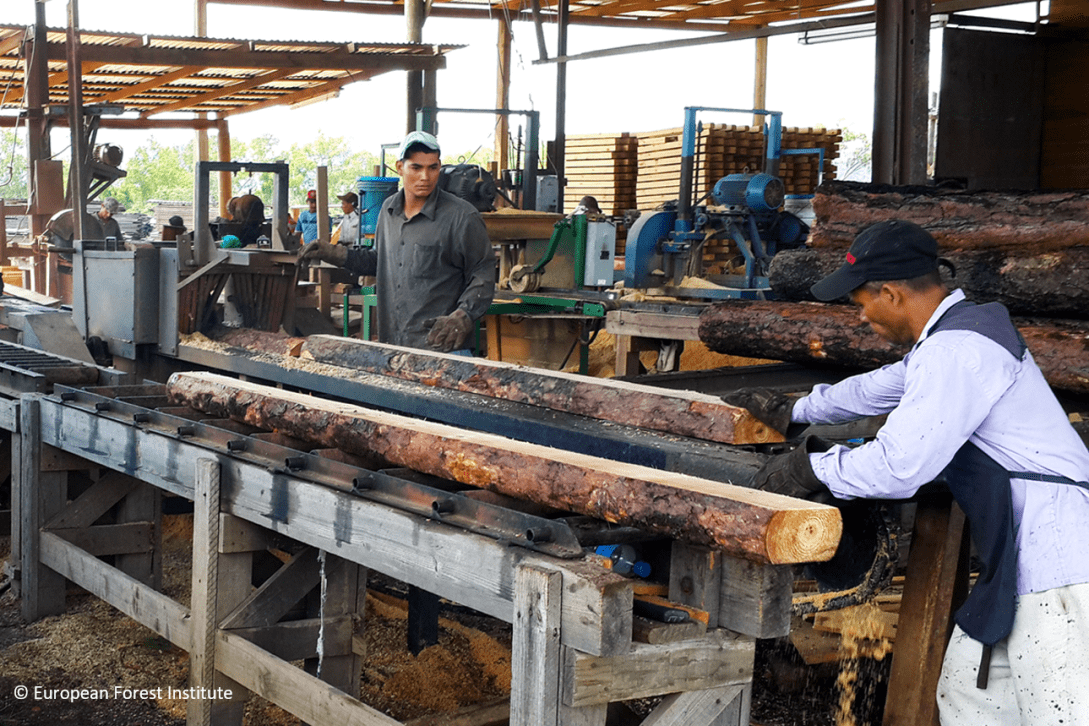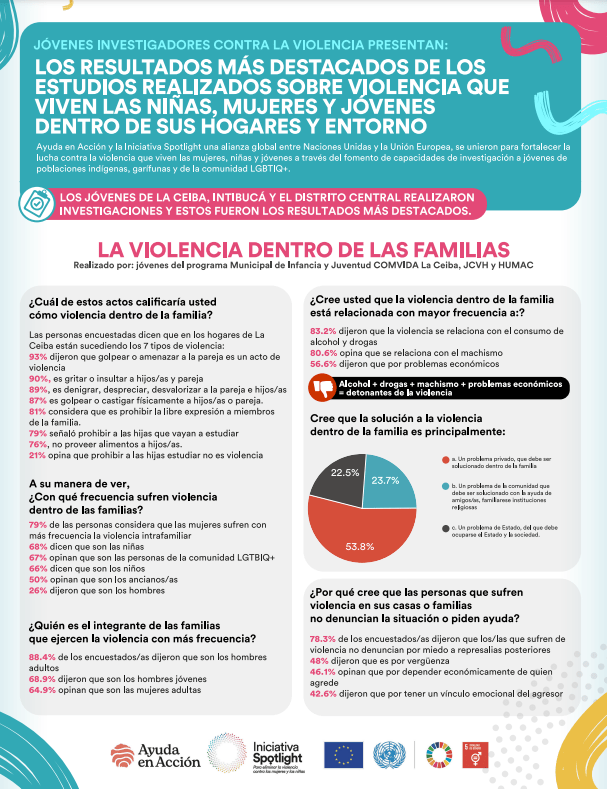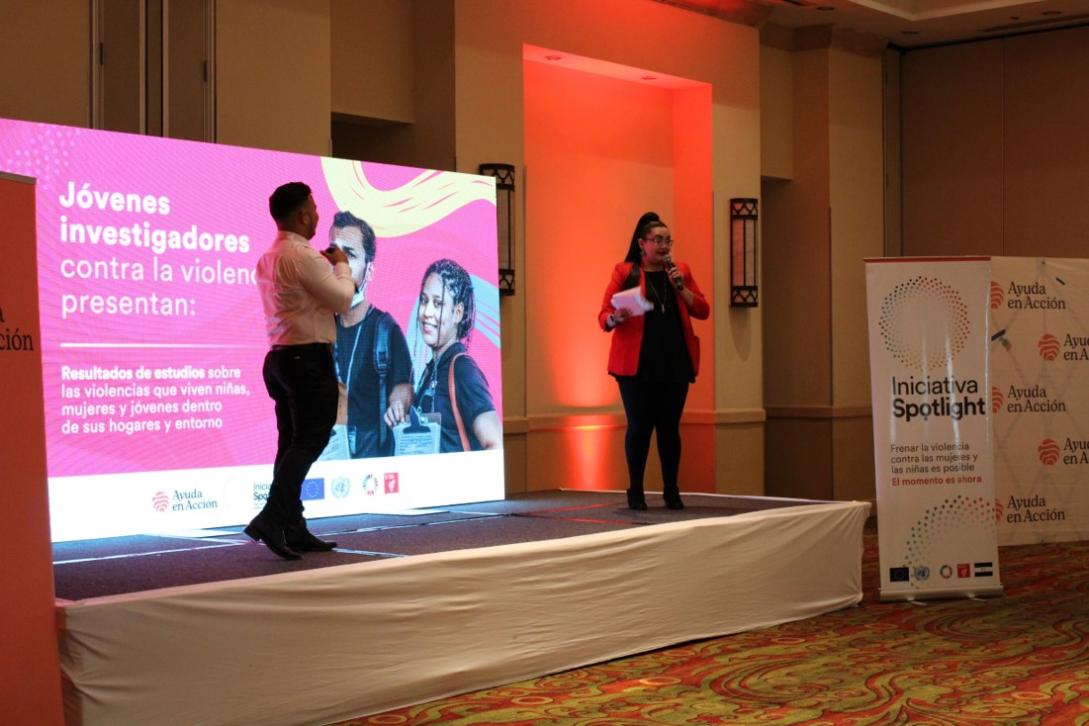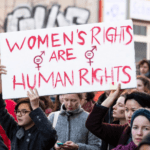The Spotlight Initiative, a global partnership between the European Union and the United Nations System, in coordination with the Action Aid Foundation, presented studies on violence experienced by girls, women and young women in their homes and environments.
Tegucigalpa, 28 September 2022- These studies were carried out in the framework of the project “Strengthening capacities for social research on VAWG+F and research practices carried out by young people and the LGTBIQ+ community”. Through this project, actions have been carried out to strengthen the fight against violence against women and girls. For the development of the studies, the participation of young people, especially those belonging to the LGTBIQ+ community, has been key in their role as researchers.
Youth taking to the streets
This initiative has trained more than 60 indigenous, Garifuna and LGTBIQ+ youth from the municipalities of La Ceiba, Central District and Intibucá. All these young people belong to six youth organisations: HUMAC, COMVIDA La Ceiba and Distrito Central, Colectivo Violeta, Jóvenes Contra la Violencia, Red de Jóvenes de Intibucá and volunteers from the Municipal Office of Children, Adolescents and Youth.
The trainings were arduous, but very learning. Through a participatory process, each group of young people in each municipality selected the type of violence they wanted to investigate. The young people from the Central District, for example, focused on violence suffered in a couple’s relationship; the group from Intibucá focused on violence without blows and the young people from La Ceiba on domestic violence.
Celenia Reyes, a young researcher from the organisation Humans in Action (HUMAC) in the city of Ceiba, department of Atlántida, said that “through the interviews we carried out, we have gathered statistics on the most common forms of violence in the municipality of La Ceiba, and we came to the conclusion that it was violence within the family”.

EU–Honduras agreement to reduce illegal timber logging and associated trade enters into force
|
Presentation of results
The research has not been limited to interviews with young people. The results have been presented publicly, which has helped the youth to empower themselves in their research.
The presentation of the results of each of the research studies was made public through presentations of the studies in front of municipal authorities and community organisations. The objective of these presentations is to make these institutions feel challenged to eradicate the violence suffered by girls, women and vulnerable populations. They should make the young population aware of how to eradicate the rates of violence at the community level. Each one of us is part of a change,” says Kevin Valerio, COMVIDA Central District.
The youth organisations, through these presentations, also test their communication skills to become a communication channel to socialise the investigations and, together with the authorities, put an end to femicides and any type of violence that affects girls and women.
Data
- 79% of those surveyed considered that women suffer more frequently from domestic violence and 67% expressed that those who suffer more frequently are people from the LGTBIQ+ community.
- 88.4% of the respondents said that adult men are the most frequent perpetrators of violence and 6.1% of the respondents said that elderly women are the most frequent perpetrators of violence.
- 94.8% of the people consulted consider that psychological violence exists in the home.
- 52.7% of the respondents considered that psychological violence suffered by young people in the home is a private problem to be solved by the family and 18.8% considered it a state problem to be dealt with by the state and society.
- 79% of the respondents said that intimate partner violence is very often related to alcohol and drug use.
The situation of violence experienced by women, girls, youth and young people from the LGTBIQ+ community is invisible. The European Union, the United Nations System, through the Spotlight initiative and the Action Aid Foundation reaffirm their commitment to the elimination of all forms of violence against women, girls and young people.

Revista sobre la violencia que viven las niñas, mujeres y jóvenes dentro de sus hogares y entorno
|
Source: Press release – Delegation of the European Union to Honduras







Leave a Reply